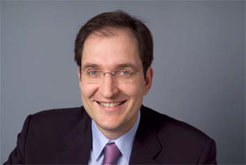Sweet Vaccines
New department for “Biomolecular Systems” at the Max Planck Institute of Colloids and Interfaces in Potsdam
The renowned German chemist Peter H. Seeberger, will establish a new Department for “Biomolecular Systems” at the MPI starting in Summer 2008. New, automated methods for the synthesis of carbohydrates are the basis for a host of applications, including novel vaccines for malaria and other major diseases. Using chemical means to create the carbohydrates that coat the cell offers diagnostic, therapeutic and preventive medical applications. The new department will greatly enrich the interdisciplinary research at the Institute.

Carbohydrates are essential for information processing in cells. They are coating every cell of the human body and play a decisive role in the detection of cell surfaces and with this for infections, immune responses and formation of metastases. Whereas these important functions of carbohydrates are discussed for a long time the underlying molecular mechanisms are most widely unknown.
To date, no general chemical synthesis method had been available to produce defined carbohydrates for biological, pharmaceutical and medical research. Prof. Seeberger and his team have bridged the gap between chemistry and glycobiology and developed the first automated oligosacharide synthesizer. This “Sugar-machine” builds up carbohydrates out of an alphabet of about 30 monosaccharides by use of solid phase synthesis.
Prof. Seeberger has laid the foundations for the advancement and development of sugar-based drugs or vaccines: He developed automatic carbohydrate synthesis and carbohydrate microarrays. One example is the vaccination with a glycolipid of the malaria parasite that is currently moving towards clinical evaluation. The work on the chemical synthesis of complex oligosaccharides including heparin and the development of vaccine candidates against infectious diseases has resulted in more than 20 international awards including the Körber Prize 2007.
Peter Seeberger was a professor at the world-renowned universities MIT (Cambridge, USA) and ETH Zürich (Switzerland) prior to moving to the Max Planck Institute of Colloids and Interfaces? The main reason for the move was the fantastic opportunities the Max Planck Institute as well as the Free University Berlin have to offer. The Berlin-Brandenburg area offers excellent opportunities for collaborations, a great student pool and a pleasant place to live.












